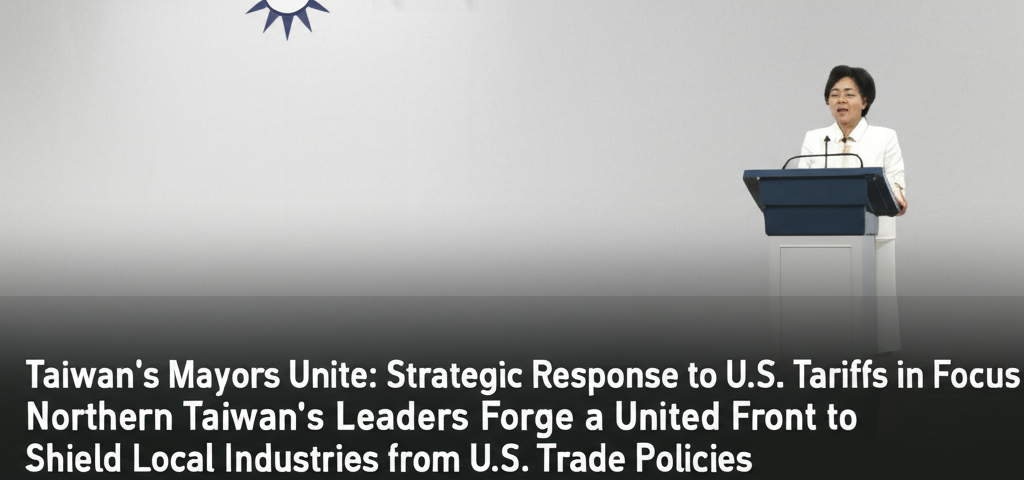Taiwan's Mayors Unite: Strategic Response to U.S. Tariffs in Focus
Northern Taiwan's Leaders Forge a United Front to Shield Local Industries from U.S. Trade Policies

Taipei, April 7 – In a proactive move to address the recently announced tariffs by the United States, Taiwan's local leaders are mobilizing for a coordinated response. According to sources, Taipei Mayor Chiang Wan-an (蔣萬安) has initiated discussions with the mayors of three other key northern municipalities to strategize countermeasures against the newly imposed tariffs.
Chiang Wan-an (蔣萬安) reached out on Sunday to Hou Yu-ih (侯友宜) of New Taipei, Hsieh Kuo-liang (謝國樑) of Keelung, and Chang San-cheng (張善政) of Taoyuan to arrange a meeting this week. The source, speaking on condition of anonymity, indicated that these four mayors have already reached a consensus to jointly mitigate the impact of the United States' 32 percent tariff on Taiwanese imports, effective April 9. Their focus will be on formulating support measures for the region's vital industries.
Further demonstrating a commitment to support local businesses, Chiang Wan-an (蔣萬安) has also launched an online platform to gather feedback from small and medium-sized enterprises, following the tariff announcement. Additionally, he held several meetings with city government bureau heads during the Tomb Sweeping holiday, highlighting the urgency of the situation.
Echoing this collaborative spirit, Taoyuan Mayor Chang San-cheng (張善政) has been in contact with the local government heads of Hsinchu City, Hsinchu County, and Miaoli County – areas central to Taiwan's technology sector – to coordinate responses. The Taoyuan City government confirmed that a roundtable discussion with leaders of major industry associations and firms is scheduled for Thursday.
These actions are part of a broader effort by local government leaders to address the economic pressure caused by the Trump administration's trade policies. Opposition Kuomintang Chairman Eric Chu (朱立倫) has voiced criticism of President Lai Ching-te (賴清德), alleging an overly "naive" approach to the tariff issue.
It's noteworthy that none of the seven city and county governments involved are led by the ruling Democratic Progressive Party.
In contrast to the actions of other major economies, President Lai Ching-te (賴清德) stated that Taiwan would not retaliate against the U.S. tariffs. His administration has established a negotiation team, led by Vice Premier Cheng Li-chiun (鄭麗君), to commence formal talks with the United States, with a goal of achieving "zero tariffs," mirroring the USMCA agreement.
In an interview, U.S. Commerce Secretary Howard Lutnick emphasized that the newly announced tariffs would not be postponed, regardless of ongoing negotiations.
Reflecting the market's concerns, Taiwan's stock market experienced a significant downturn on Monday, with the opening bell triggering a drop of over 2,000 points, and soon dipped below the 20,000 mark. Taiwan Semiconductor Manufacturing Co. (TSMC), a major player in the local market, saw its stock price plummet to its limit-down price, NT$848 (US$25.56), shortly after the market opened.
